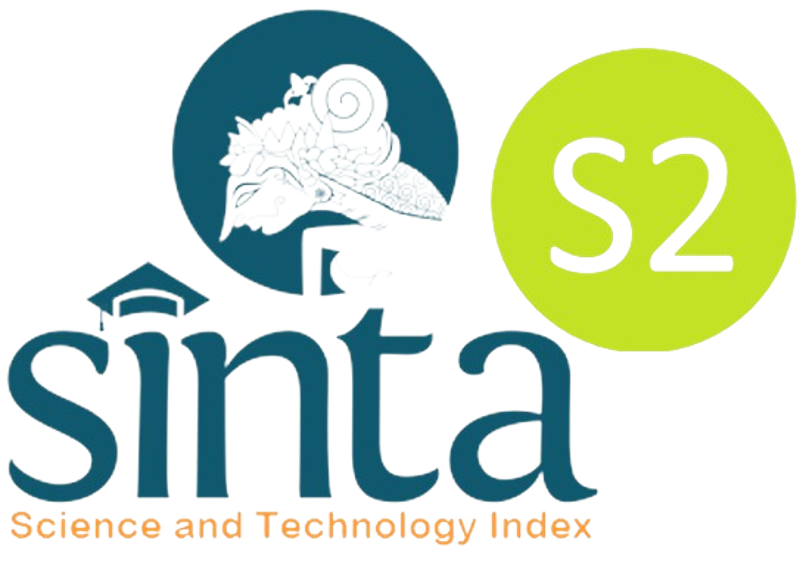Principal Strategy in Improving Teacher Performance to Achieve Learning Effectiveness at Public Middle School in Banda Aceh City
Abstract
Abstract Principal Strategy in Improving Teacher Performance to Achieve Learning Effectiveness at Public Middle School in Banda Aceh City. Objectives The aim of this research is to obtain complete and accurate data from the school about principal strategy in improving the learning effectiveness. Methods This research used decriptive qualitative approach. The technique of data collection used are observation, interview, and documentation. The subject of this research are principals, and teachers. Findings The result of this research shows that (1) Principal strategy in the process of program arrangement are creating the team to arrange the program, to build disipline, to make employment contract, to motivate, to training and supervision (2) The principal in implementing the coaching and development program to improve the learning effectiveness, the principal controlled the program implementation in order to be implemented well (3) Principal strategy in evaluating the coaching and development program to improve the learning effectiveness is by doing evaluation.
Keywords Principal strategy, teacher performance, learning effectiveness.
Abstrak Strategi Kepala Sekolah dalam Meningkatkan Kinerja Guru untuk Mencapai Efektivitas Belajar di Sekolah Menengah Umum di Kota Banda Aceh. Tujuan Tujuan dari penelitian ini adalah untuk memperoleh data yang lengkap dan akurat dari sekolah tentang strategi kepala sekolah dalam meningkatkan efektivitas belajar. Metode Penelitian ini menggunakan pendekatan kualitatif deskriptif. Teknik pengumpulan data yang digunakan adalah observasi, wawancara, dan dokumentasi. Subjek penelitian ini adalah kepala sekolah, dan guru. Temuan Hasil penelitian ini menunjukkan bahwa (1) Strategi utama dalam proses pengaturan program adalah menciptakan tim untuk mengatur program, membangun disiplin, membuat kontrak kerja, memotivasi, mengikuti pelatihan dan pengawasan (2) Kepala sekolah dalam melaksanakan program pembinaan dan pengembangan untuk meningkatkan efektivitas belajar, kepala sekolah mengendalikan pelaksanaan program agar dapat dilaksanakan dengan baik (3) Strategi utama dalam mengevaluasi program pembinaan dan pengembangan untuk meningkatkan efektivitas pembelajaran adalah dengan melakukan evaluasi.
Kata kunci Strategi kepala sekolah, kinerja guru, efektivitas belajar.
Full Text:
PDFReferences
Altbach, P. G., Reisberg, L., & Rumbley, L. E. (2019). Trends in global higher education: Tracking an academic revolution. Brill.
Baker-Doyle, K. J. (2017). Transformative Teachers: Teacher Leadership and Learning in a Connected World. Harvard Education Press. 8 Story Street First Floor, Cambridge, MA 02138.
Cayirdag, N. (2017). Creativity fostering teaching: Impact of creative self-efficacy and teacher efficacy. Educational Sciences: Theory & Practice, 17(6).
Cheng, V. M. (2018). Consensual assessment of creativity in teaching design by supportive peers: Its validity, practicality, and benefit. The Journal of Creative Behavior, 52(1), 5-20.
Choi, S. B., Kim, K., & Kang, S. W. (2017). Effects of transformational and shared leadership styles on employees’ perception of team effectiveness. Social Behavior and Personality: an international journal, 45(3), 377-386.
Cook-Sather, A., & Felten, P. (2017). Ethics of academic leadership: Guiding learning and teaching. Cosmopolitan perspectives on academic leadership in higher education, 175-191.
Czerniawski, G., Guberman, A., & MacPhail, A. (2017). The professional developmental needs of higher education-based teacher educators: An international comparative needs analysis. European Journal of Teacher Education, 40(1), 127-140.
Fiori, B. K. (2018). School Principal as Instructional Leader: Connections Between Principal Evaluation and Student Achievement (Doctoral dissertation, University of Dayton).
Fuller, M. J., & Templeton, N. R. (2019). Principal as Servant-Leader: An Embedded-Descriptive Single-Case Study of One Prekindergarten School’s Efforts to Build Teacher Capacity in Foundational Skills. Education Leadership, 190.
Glatthorn, A. A., Jailall, J. M., & Jailall, J. K. (2016). The principal as curriculum leader: Shaping what is taught and tested. Corwin Press.
Hejres, S., Braganza, A., & Eldabi, T. (2017). The impact of Acceptance of Leader criteria on Instructional Leadership. Educational Research Application, 10, 2575-7032.
Huang, X., Lee, J. C. K., & Yang, X. (2019). What really counts? Investigating the effects of creative role identity and self-efficacy on teachers’ attitudes towards the implementation of teaching for creativity. Teaching and Teacher Education, 84, 57-65.
Johnson, S. L., Pas, E., & Bradshaw, C. P. (2016). Understanding the association between school climate and future orientation. Journal of youth and adolescence, 45(8), 1575-1586.
Klar, H. W., Huggins, K. S., Hammonds, H. L., & Buskey, F. C. (2016). Fostering the capacity for distributed leadership: A post-heroic approach to leading school improvement. International Journal of Leadership in Education, 19, 111-137.
Li, L., Hallinger, P., & Ko, J. (2016). Principal leadership and school capacity effects on teacher learning in Hong Kong. International Journal of Educational Management.
Knight Abowitz, K. (2019). The school principal as democratic leader: A critique of the Wallace Foundation’s vision of the principalship. International Journal of Leadership in Education, 1-7.
MacBeath, J. (2019). Leadership for learning. In Instructional Leadership and Leadership for Learning in Schools (pp. 49-73). Palgrave Macmillan, Cham.
Matherson, L., & Windle, T. M. (2017). What do teachers want from their professional development? Four emerging themes. Delta Kappa Gamma Bulletin, 83(3), 28.
Mayes, T. (2018). Learning technology and learning relationships. In Teaching & learning online (pp. 16-26). Routledge.
Mehta, R., Xu, L., & Dahl, D. W. (2019). The role of identity salience in creative thinking. In Handbook of Research on Identity Theory in Marketing. Edward Elgar Publishing.
Paul, R., & Elder, L. (2019). The nature and functions of critical & creative thinking. Rowman & Littlefield.
Ping, C., Schellings, G., & Beijaard, D. (2018). Teacher educators’ professional learning: A literature review. Teaching and Teacher Education, 75, 93-104.
Tsai, Y. S., Poquet, O., Gaševiæ, D., Dawson, S., & Pardo, A. (2019). Complexity leadership in learning analytics: Drivers, challenges and opportunities. British Journal of Educational Technology, 50(6), 2839-2854.
Zhang, J., & Pang, N. S. K. (2016). Exploring the characteristics of professional learning communities in China: A mixed-method study. The Asia-Pacific Education Researcher, 25(1), 11-21.
Refbacks
- There are currently no refbacks.
Copyright (c) 2020 Jurnal Pendidikan Progresif

This work is licensed under a Creative Commons Attribution-ShareAlike 4.0 International License.
View My Stats

The copyright is reserved to The Jurnal Pendidikan Progresif that is licensed under a Creative Commons Attribution-ShareAlike 4.0 International License.





